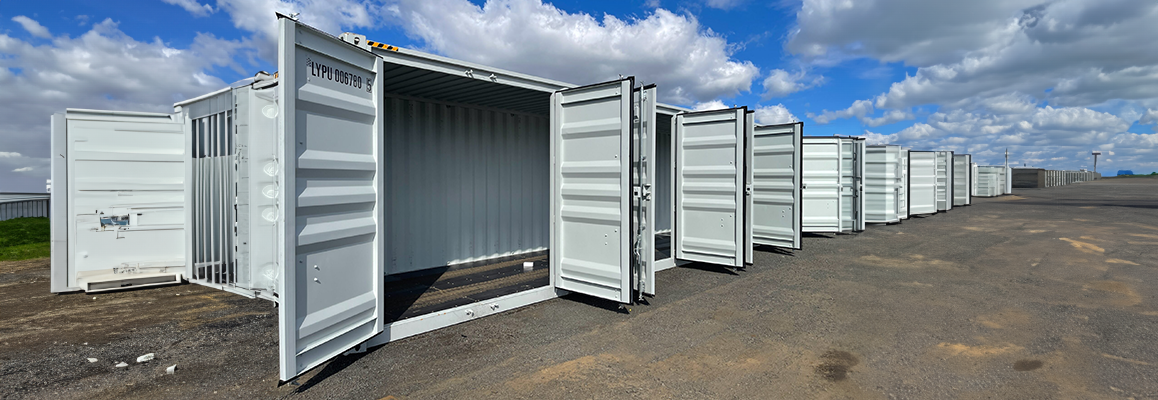Call us now!
Call us now!
When it comes to the logistics of your business, finding the right size shipping container is essential. Whether you need to lease shipping containers in California or find portable storage containers for sale in California, determining the correct size is crucial to ensure efficient and cost-effective operations. In this blog post, we’ll guide you through the process of finding the perfect shipping container size for your business needs. By the end, you’ll have a clear understanding of the factors to consider and be well-equipped to make an informed decision.
Before diving into the specifics of shipping container sizes, it’s important to assess your business requirements so you have the best idea of what you need to accommodate. Take some time to consider the following factors:
Shipping containers come in various sizes each serving a different purpose. Familiarize yourself with the standard sizes available to make an informed choice:
While understanding the size options is essential, there are a few more factors to consider before finalizing your decision:

Choosing the right size shipping container is a critical decision that can significantly impact the logistics of your business. By assessing your requirements, understanding the available options, and considering additional factors, you’ll be able to find the perfect fit. Remember to consider the type and volume of goods, the frequency of shipments, available space, accessibility, and your budget.
Armed with this knowledge, you can confidently lease or purchase shipping containers in California. If you are looking for the best portable storage containers for sale in California, check out Spinnaker. They will help you with the best shipping containers that perfectly align with your business needs.
Q1: What factors should I consider when determining the right shipping container size for my business?
When selecting a shipping container size, it’s important to consider factors such as the type and volume of goods you’ll be shipping, the frequency of shipments, and the available space for storage or loading.
Q2: What are the standard sizes of shipping containers available?
The most common standard sizes of shipping containers are 10 feet, 20 feet, and 40 feet in length. However, specialized containers, such as high-cube and refrigerated containers, are also available to cater to specific needs.
Q3: Are 20-foot containers suitable for most businesses?
Yes, 20-foot containers are widely used and offer ample space for the majority of businesses. They provide a good balance between capacity and cost-effectiveness.
Q4: When should I consider using a 40-foot container?
A 40-foot container is ideal for businesses that require larger shipments or need to transport oversized items. Industries with high shipping volumes or industrial applications often opt for this size.
Q5: What if my business has limited storage space?
If space is a concern, 10-foot containers can provide a convenient solution. They are smaller in size and offer flexibility for businesses with limited storage requirements.
Q6: Are there any other container options besides the standard sizes?
Yes, besides the standard sizes, there are specialized containers available to meet unique requirements. These include high-cube containers that provide extra vertical space and refrigerated containers for transporting perishable goods.
Stay Updated and get our latest news, offers right in to your inbox.